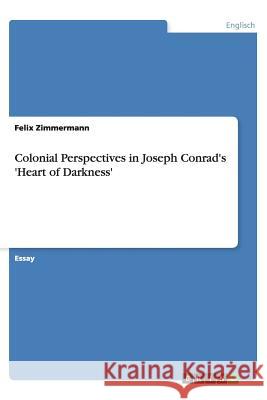Colonial Perspectives in Joseph Conrad's 'Heart of Darkness' » książka
Colonial Perspectives in Joseph Conrad's 'Heart of Darkness'
ISBN-13: 9783640560011 / Niemiecki / Miękka / 2013 / 28 str.
Essay aus dem Jahr 2010 im Fachbereich Anglistik - Literatur, Note: 2,0, Europa-Universitat Viadrina Frankfurt (Oder), Veranstaltung: Interpersonal Relations in a Globalized World, Sprache: Deutsch, Abstract: Interpreting the novel "Heart of Darkness," confronts the reader in a direct way with the barbarity of the former colonial system in Congo. Joseph Conrad illustrates in his highly valued novel numerous aspects of the European view of the African continent in the late 19th century. These times were characterized by an omnipresent pursue of establishing economically promising colonies in different parts of the world. Due to their vast repertoire of natural resources, African countries played an important role in the struggle about European hegemonic interests. However, aside from merely commercial matters, there was a certain need for moral justification based on ideological concepts. The novel's central character Marlow "reflects the authors perception"(Cf. Achebe 2000: 21 et seq.) of the Congo's inhabitants and nature, as well as his attitude towards the sense or nonsense of colonial enforcement of power. Analyzing Marlow's thoughts and comments, implies therefore drawing a picture of Conrad's mind and behavior patterns, developed during his engagement as a a captain on a steamship, in the course of Belgiums intention to exploit the Congo's natural and human resources. It is the act's impressive narrative style, as well as the subtle attempt to uncover Conrad's intentions, that prompt many critics to the position - represented among others by the famous Nigerian writer Chinua Achebe - that he has to be rated as being not only a good story-teller but also as being racist (Cf. Ibid.: 10, 25). Actually the novel contains several passages that confirm Achebe's opinion, for instance when Marlow, when speaking about the Congo's inhabitants, states disgustedly...











